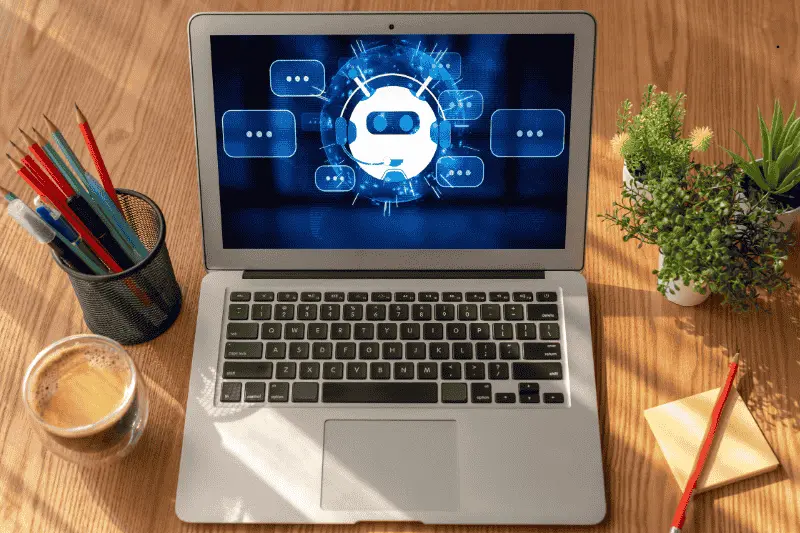Artificial Intelligence (AI) is not just a concept of the future; it’s a present-day reality that is transforming workplaces in various sectors. The rise of AI in the workplace is evident as AI automates mundane tasks and improves decision-making processes, emerging as an essential resource for boosting efficiency and encouraging innovation. Its impact continues to expand, making it vital for both businesses and employees to grasp and adjust to the changes it introduces.
Automation of routine tasks
A major impact of AI in the workplace is its capacity to automate routine tasks. Activities like data entry, scheduling, and inventory management, which used to take hours of manual work, can now be managed by AI tools in a much shorter time. This automation frees up employees to concentrate on strategic, creative, and high-value tasks that require human insight, enhancing productivity for both individuals and organizations. For example, customer service teams increasingly use AI-driven chatbots to address common inquiries, leading to faster responses and improved customer experiences.
Enhanced decision-making through data analysis
AI significantly improves decision-making by sifting through large volumes of data and offering practical insights. Companies can leverage these insights to forecast market trends, streamline operations, and make well-informed choices with greater precision. The capacity of AI to analyze and understand data surpasses that of humans, positioning it as a crucial asset for businesses aiming to gain a competitive advantage in a data-centric environment.
Personalized employee development
In addition to enhancing operations, AI is reshaping employee experiences by customizing development opportunities. Contemporary AI tools can evaluate individual performance, pinpoint skill gaps, and recommend personalized learning paths. Virtual coaches and AI-powered platforms are assisting employees in acquiring new skills more effectively, promoting professional growth and job satisfaction. For human resource departments, AI streamlines recruitment processes, ensuring that candidates are aligned with roles that best fit their skills and career goals.
Improving collaboration across teams
Collaboration in the workplace is changing with the rise of AI. AI-powered communication tools improve interactions, making it easier for remote and global teams to work together. For instance, virtual assistants can help schedule meetings across various time zones, removing the logistical hurdles of coordinating diverse teams. These innovations boost workplace unity and facilitate smoother operations in our increasingly digital work environments.
Strengthening cybersecurity with AI
Another important field where AI is having a significant effect is cybersecurity. With organizations gathering and handling more data than ever, safeguarding sensitive information has become a major focus. AI-powered security systems can identify and react to potential threats by examining patterns and spotting irregularities, offering a strong defense against cyberattacks. This forward-thinking strategy greatly minimizes the chances of breaches, helping to maintain data integrity and trust.
Addressing challenges in AI adoption
While the advantages of AI are clear, its implementation presents challenges that need to be tackled. A significant concern is the anxiety surrounding job loss. Even though AI generates new positions, like data analysts and AI specialists, it also eliminates some jobs, particularly those that involve repetitive tasks. To lessen this effect, companies should focus on reskilling and upskilling their employees, providing them with the knowledge and resources necessary to succeed in an AI-enhanced environment.
Another challenge is the potential biases that can exist within AI systems. Because AI is trained on existing data, any biases in that data can result in unfair outcomes. Organizations need to make sure their AI systems are transparent and built to encourage fairness and equality. Additionally, data privacy and security are crucial concerns, as AI often depends on large quantities of sensitive information. Companies must establish strong policies and practices to protect this data and uphold trust.
Balancing costs and benefits
Integrating AI demands a considerable investment in infrastructure, tools, and training, which can be overwhelming for certain organizations. Nevertheless, these expenses are frequently surpassed by the long-term advantages of enhanced efficiency, innovation, and competitiveness. Companies that take a strategic and ethical approach to AI integration are more likely to experience significant returns on their investments.
Embracing Human-AI collaboration
To fully leverage the potential of AI, companies must cultivate a culture that views this technology as a collaborative tool rather than a threat to human jobs. This requires establishing clear guidelines, promoting ethical usage, and fostering an understanding of how AI can enhance human skills instead of replacing them. By equipping employees and investing in AI-friendly systems, organizations can create workplaces that are not only more efficient but also more innovative and rewarding.








